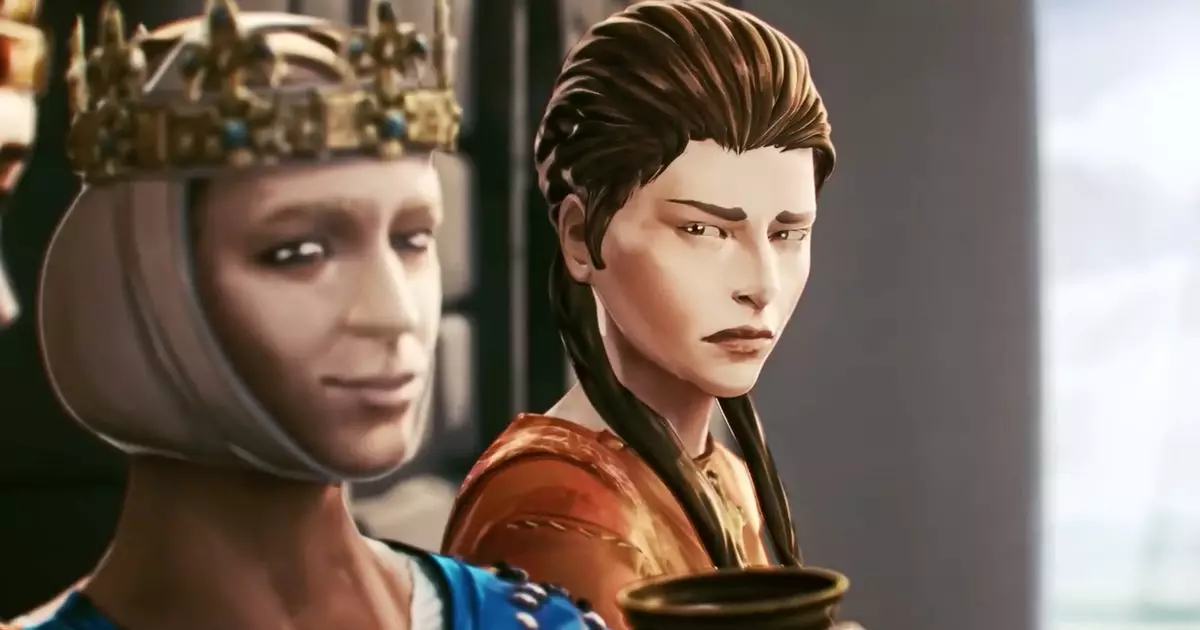In the ever-evolving landscape of video games, few titles have captured the essence of complex decision-making and emergent storytelling quite like Paradox’s Crusader Kings 3 (CK3). Recently, the developers took an exhilarating step by launching a player survey aimed at collecting valuable insights regarding the future trajectory of the game. This initiative not only invites fans to influence development but also highlights the dedication of Paradox in fostering a community-driven approach. The survey, while verbose, serves as a vital tool for players to express their opinions on gameplay mechanics and narrative elements, thus playing a pivotal role in shaping the CK3 universe.
Surveying the players’ preferences opens a window into the developers’ understanding of their audience’s desires. The core question regarding player archetypes challenges participants to define their primary motivations—be it engaging in deep roleplay or conquering systemic challenges. This duality reflects the multifaceted nature of CK3, suggesting that player experiences can be further curated to cater to individual preferences. A player who finds joy in character-driven narratives, from orchestrating royal marriages to navigating treacherous political waters, may appreciate gameplay mechanics that enhance roleplaying elements, such as intricate character traits or dynamic events. In contrast, those who thrive on strategic dominance might yearn for gameplay innovations that bolster military prowess and resource management.
Role-playing vs. Systemic Challenges: A Delicate Balance
The survey’s framing of player motivations provokes critical reflection on how game design can align with these preferences. By delineating a clear distinction between roleplaying and systemic challenges, Paradox underscores the importance of understanding player engagement on a granular level. The nuances between these archetypes invite a deeper exploration of game mechanics. Players who adore weaving intricate stories through their characters often delve into emergent gameplay scenarios where ambition and legacy intertwine—an aspect that could be amplified by adding new narrative threads or unique character arcs.
Conversely, enhancing systemic challenges requires a focus on the underlying mechanics that define CK3’s gameplay. Players who prioritize resource management and strategic dominance may benefit from the introduction of features that deepen the economic or military systems. For instance, a more robust banking mechanism or advancements in warfare tactics could provide a fresh layer of complexity, appealing to those who relish overcoming obstacles through cunning strategies. This synergy between roleplaying and systemic challenges is crucial for the longevity of CK3, allowing players to define their journeys in the rich tapestry of history.
Charting New Terrain: Trade, Religion, and Expansion
The reference to various themes such as trade, feudalism, and religious dynamics in the survey hints at the developers’ awareness of the broad tapestry that defines medieval life. Trade and commerce, particularly, offers fertile ground for storytelling and gameplay development. Areas such as naval trade or the rise of merchant republics hold tremendous potential for enriching player experiences. Players desiring a thriving economic empire might welcome the intricacies of supply chains, diplomacy with rival merchants, and the challenges of maintaining a robust trading network.
Moreover, the call for themes related to religion and crusades is a powerful reminder of the socio-political intricacies that once defined the medieval world. By expanding on these themes, Paradox can craft scenarios that challenge players to navigate not only their ambitions but also the moral dilemmas that such power entails. The intertwining of warfare, religion, and trade encapsulates the multifaceted struggles of the era, lending itself to compelling narratives that resonate with players.
With every survey response, players are afforded a unique opportunity to directly influence the development of a game steeped in historical legacy while offering a canvas for personal storytelling. By voicing opinions on desired improvements and themes, the CK3 community fosters an extraordinary bond with the developers—one that relies on mutual respect and shared passion. This feedback-driven method signifies not only a commitment to enhancing gameplay but also an acknowledgment that every player’s journey is valid and reflective of the rich lore that surrounds Crusader Kings 3.
As the future unfolds, the notion of emergent storytelling will remain at the forefront of CK3’s narrative journey. Through player input and the creative visions of the developers, the game promises to continue evolving, forging a path that balances heritage with dynamic gameplay features. In this continuous dialogue between creators and their audience, Crusader Kings 3 can secure its place as a bastion of creativity, strategy, and unforgettable experiences.

